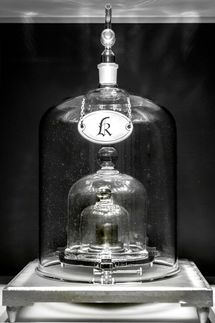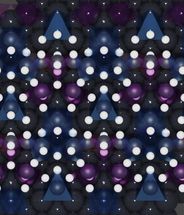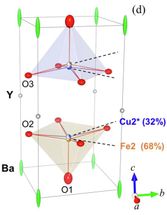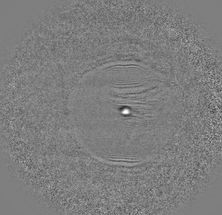The "new" kilogram is approaching
Avogadro constant determined with enriched silicon-28
A milestone in the international Avogadro project coordinated by the Physikalisch-Technische Bundesanstalt (PTB) has been reached: With the aid of a single crystal of highly enriched 28Si, the Avogadro Constant has now been measured as exactly as never before with a relative overall uncertainty of 3 · 10-8. Within the scope of the redefinition of the kilogram, the value NA = 6.02214078(18) · 1023 mol-1 permits the currently most exact realization of this unit.
The crucial phase of the long-term Avogadro project – which is coordinated by PTB – started in 2003: In that year, several national metrology institutes launched – together with the Bureau International des Poids et Mesures (BIPM) and in cooperation with Russian research institutes – the ambitious project of having approximately 5 kg of highly enriched 28Si (99.99 %) be manufactured as a single crystal, of measuring the Avogadro constant with it and of achieving – by the year 2010 – a measurement uncertainty of approx. 2 · 10–8. Meanwhile, the first measurements have been completed on the two 1 kg spheres of 28Si – which had been polished in Australia – and their density, lattice parameter and surface quality have been determined.
The single steps: After an extensive check of the crystal perfection, the influence of the crystal lattice defects was assessed. Then, the lattice parameter was determined at the Italian metrology institute (INRIM) by means of an X-ray interferometer, and confirmed by comparison measurements with a natural Si crystal at the American NIST. At BIPM, NMIJ (Japan) and PTB, the masses of the two silicon spheres were linked up in vacuum to the international mass standards. In the respective Working Groups of NMIJ, NMI-A (Australia) and PTB, the sphere volume was measured optically – with excellent agreement – by means of interferometers with different beam geometries. The surface layer (basically composed of silicon dioxide) was spectroscopied with electron radiation, X-ray radiation and synchrotron radiation in accordance with different procedures, analyzed and taken into account for the determination of the silicon density. The unexpectedly high metallic contamination of the sphere surfaces with copper and nickel silicides which occurred during the polishing process was measured, and its influence on the results of the sphere volume and of the sphere mass was assessed. This resulted in a higher measurement uncertainty.
What was decisive for the success achieved – i.e. a relative overall measurement uncertainty of 3 · 10–8 – was the development of a new mass-spectrometric method for the determination of the molar mass at PTB.
The result is a milestone on the way towards a successful realization of the new kilogram definition on the basis of fundamental constants whose values have been fixed. At present, the agreement of this value with other realizations of the kilogram is not good enough to change the existing definition of the mass unit. The present state of the Avogadro project is, however, so promising that – on the basis of new measurements with improved sphere interferometers – the measurement uncertainty of 2 · 10–8 demanded by the Consultative Committee for the Mass (CCM) will in the near future be achieved on contamination-free spheres and will probably even be undercut.
Original publication
Most read news
Original publication
Andreas, B.; Azuma, Y.; Bartl, G.; Becker, P.; Bettin, H.; Borys, M.; Busch, I.; Gray, M. et al. (2011), "An accurate determination of the Avogadro constant by counting the atoms in a 28Si crystal", Phys. Rev. Lett. 106 (3): 030801 (4 pages)
Organizations
Other news from the department science

Get the analytics and lab tech industry in your inbox
By submitting this form you agree that LUMITOS AG will send you the newsletter(s) selected above by email. Your data will not be passed on to third parties. Your data will be stored and processed in accordance with our data protection regulations. LUMITOS may contact you by email for the purpose of advertising or market and opinion surveys. You can revoke your consent at any time without giving reasons to LUMITOS AG, Ernst-Augustin-Str. 2, 12489 Berlin, Germany or by e-mail at revoke@lumitos.com with effect for the future. In addition, each email contains a link to unsubscribe from the corresponding newsletter.





















































